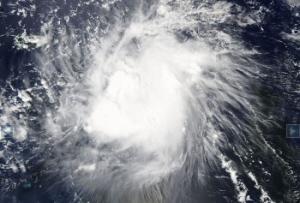Environment
Turn down the volume: New IUCN guide helps navigate seismic survey impacts on marine species
A guide launched on 2 September by IUCN, International Union for Conservation of Nature, outlines best practices to ensure environmentally responsible seismic surveys and other forms of undersea mapping, with the aim of minimizing negative impacts of loud associated noise on marine life.Honolulu, Hawai’i, 2 September (IUCN) – A guide launched on 2 September by IUCN, International Union for Conservation of Nature, outlines best practices to ensure environmentally responsible seismic surveys and other forms of undersea mapping, with the aim of minimizing negative impacts of loud associated noise on marine life.
- Read more
- 301 reads
Additional US$18 Million to Support Improved Wastewater Management in Tunisia
The World Bank Group’s Board of Executive Directors on September 1st approved US$18 million (euros 16.2 million) in additional financing to complete an environmentally safe wastewater disposal system considered critical for the protection of sensitive marine ecosystems off the coast of Tunisia. Part of the Northern Tunis Wastewater Project, the new financing is for the construction of a 6km submarine outfall, an underwater pipeline that will transport treated wastewater away from the shore for improved dispersal and dilution.
- Read more
- 311 reads
The World Bank and the International Water Association to Establish a Partnership to Reduce Water Losses
The World Bank and the International Water Association (IWA) declared their intentions at World Water Week to establish a global partnership to help countries, especially the poorest, improve management of water that is pumped but then lost or unaccounted for, called non-revenue water (NRW), on September 1st.
- Read more
- 326 reads
Dominica: one year after Tropical Storm Erika, schools continue to recover with the help of EI’s Development Cooperation

- Read more
- 308 reads
EPA settlement with George Mason University will improve oil spill prevention and protect the Potomac River
The U.S. EPA announced that George Mason University will pay a $20,964 penalty to settle alleged violations related to the discharge of fuel oil from a storage facility in Fairfax, Va. into a waterway that flows into the Potomac River, on 31 August.
- Read more
- 280 reads
Despite High Energy Needs, Industries Can Help Reduce Global Greenhouse Gas Emissions
Industries and the products they make can play a considerable role in the global effort to tackle climate change. Making them part of the solution while helping them stay competitive is a key challenge for policy makers, according to a new report from the World Bank Group, CLASP and Carbon Trust.
- Read more
- 314 reads
New Sulfur Dioxide Air Monitors Operational at Bridgeton Landfill
In April, EPA reached an agreement with Bridgeton Landfill, LLC, to install and operate two sulfur dioxide (SO2) ambient air monitors near the Bridgeton Landfill. The agreement requires these monitors to provide 1-hour measurements and to operate for a period of one year. These new air monitors are now operating and producing results, which are available to the public online Exit.
- Read more
- 317 reads
Verheugen: car emission rules could be more specific
The inquiry committee on Emission Measurements in the Automotive Sector (EMIS) heard Günter Verheugen, Commissioner for enterprise and industry 2004-2010, on how the current legislation on car emissions was drafted during his tenure. MEPs also heard Peter Lakin, vice president of Faurecia, on emission control technologies.
- Read more
- 309 reads
Environmental Solutions to Take Center Stage at World Conservation Congress
The Congress takes place every four years, bringing together government officials, business leaders, and representatives from indigenous groups, scientists, academics, influencers, and NGOs to identify evolving trends, current threats, and innovative solutions to our planet’s most pressing environmental problems.
- Read more
- 359 reads
Africa’s New Frontier: African Ministers, World Bank and Partners Meet in Mauritius to Catalyze Investments for the Ocean Economy
About one third (31%) of Africa’s population lives on the coast, where the oceans are drivers for growth and prosperity. They provide jobs, food security and remain an important source of leisure and spiritual value. Yet, oceans —a tremendous resource for Africa when used in a sustainable way— are currently under threat. One of the biggest challenges to coastal and marine systems is climate change, which is already affecting many countries in Africa especially the poor.
- Read more
- 272 reads
Human Rights
Fostering a More Humane World: The 28th Eurasian Economic Summi

Conscience, Hope, and Action: Keys to Global Peace and Sustainability

Ringing FOWPAL’s Peace Bell for the World:Nobel Peace Prize Laureates’ Visions and Actions

Protecting the World’s Cultural Diversity for a Sustainable Future

Puppet Show I International Friendship Day 2020

